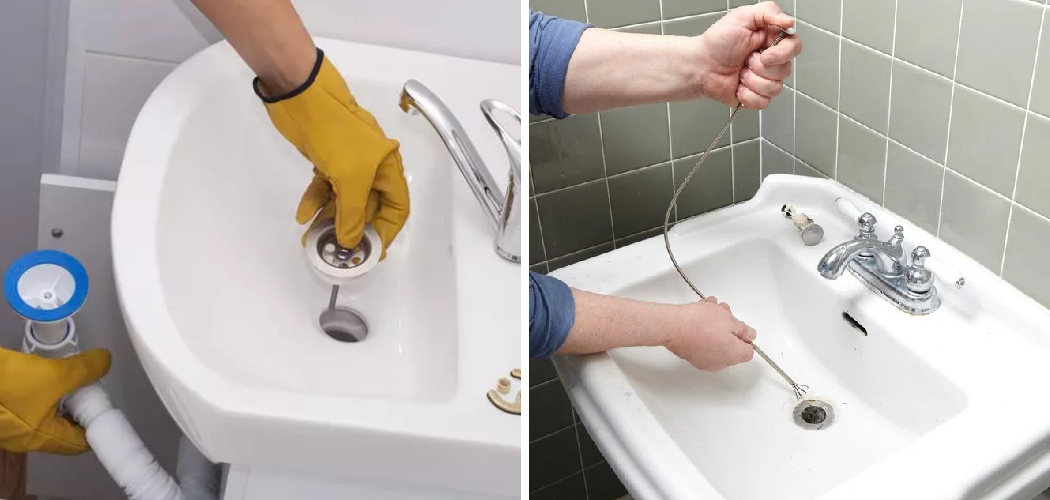When it comes to maintaining a fresh and inviting bathroom, a clean sink drain is essential. Over time, drains can develop unpleasant odors due to the buildup of hair, soap residue, and food particles that accumulate within the pipes. Not only can these odors be off-putting, but they can also indicate potential plumbing issues if left unaddressed.
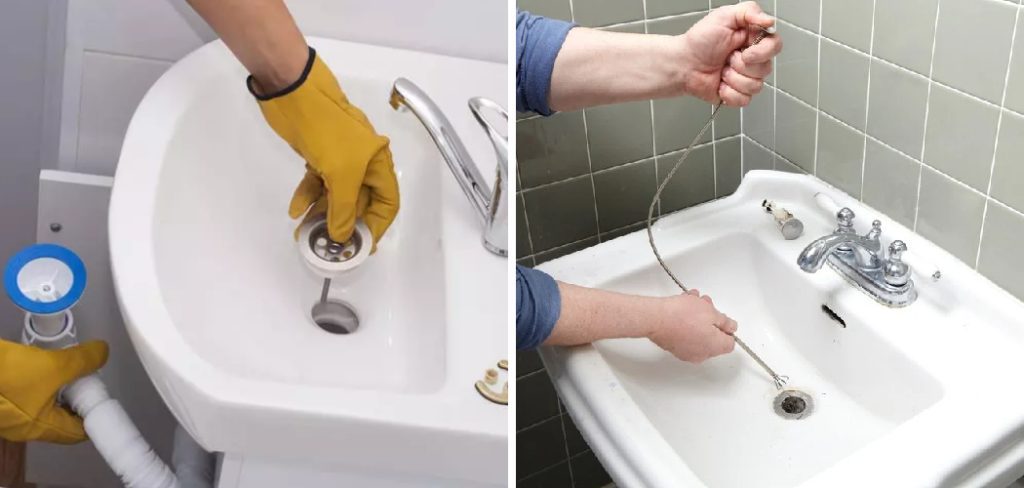
In this guide on how to deodorize bathroom sink drain, we will explore effective methods to deodorize your bathroom sink drain, ensuring a pleasant environment in one of the most frequently used spaces in your home. Whether you prefer natural remedies or store-bought solutions, we have you covered with tips to tackle unwanted smells and keep your drain smelling fresh.
What is Causing the Odor in Your Bathroom Sink Drain?
The unpleasant smells emanating from your bathroom sink drain can be attributed to several common culprits. One of the primary sources is the accumulation of organic matter, such as hair, soap scum, and skin cells, which can form a slippery sludge that traps bacteria. These bacteria break down the organic material, releasing foul-smelling gases as a result.
Additionally, food particles accidentally washed down the sink can also contribute to unpleasant odors, especially if they remain trapped in the pipes. Another possible cause may be a dry P-trap, which is a plumbing feature designed to hold water that prevents sewer gases from escaping into your home. If the water in the P-trap evaporates, it can create an opportunity for unpleasant odors to escape. Understanding these sources is the first step toward effectively deodorizing and maintaining your bathroom sink drain.
Needed Materials
Before we delve into the methods to deodorize your bathroom sink drain, here are some materials that you may need:

Baking Soda:
Baking soda is a versatile and effective deodorizer that can help eliminate odors from your sink drain. It works by neutralizing acidic or basic substances, making it an ideal solution for removing unpleasant smells. Additionally, baking soda is non-toxic and environmentally friendly, making it a preferred option for those seeking natural remedies.
Vinegar:
Another natural and readily available product to deodorize your bathroom sink drain is vinegar. The acetic acid in vinegar helps to break down organic matter, killing any bacteria responsible for producing the foul odor. Moreover, vinegar also has anti-fungal properties, making it effective at eliminating mold and mildew buildup in your pipes.
Boiling Water:
Boiling water can be a quick and easy solution to eliminate odors from your bathroom sink drain. The high temperature of the water can help dissolve any buildup within the pipes, clearing out trapped particles that may be contributing to the smell.

Plunger:
For stubborn clogs or buildup in your sink drain, using a plunger can help dislodge and remove the obstruction. This tool is specifically designed to create suction and pressure, allowing you to manually clear any blockages and improve drainage in your sink.
8 Methods on How to Deodorize Bathroom Sink Drain
Step 1: Baking Soda and Boiling Water
To effectively deodorize your bathroom sink drain using baking soda and boiling water, start by measuring about half a cup of baking soda. Carefully pour the baking soda directly down the drain, ensuring it reaches as far into the pipes as possible. Next, boil approximately two cups of water and once it reaches a rolling boil, slowly pour it down the drain over the baking soda.
The combination of baking soda and high-temperature water will create a fizzy reaction that helps break down any grease and debris lodged in the pipes while eliminating any unpleasant odors. Allow the mixture to sit for about ten to fifteen minutes before rinsing with cold water to flush out any remaining residue. This simple yet effective method can significantly improve the scent of your bathroom sink drain.
Step 2: Vinegar and Baking Soda
Another effective method to deodorize your bathroom sink drain is by using a combination of vinegar and baking soda. Start by pouring about half a cup of baking soda directly down the drain, allowing it to settle into the pipes. Next, measure out half a cup of vinegar and slowly pour it down the drain over the baking soda. The combination will produce a fizzy reaction that helps to break down buildup and neutralize odors.
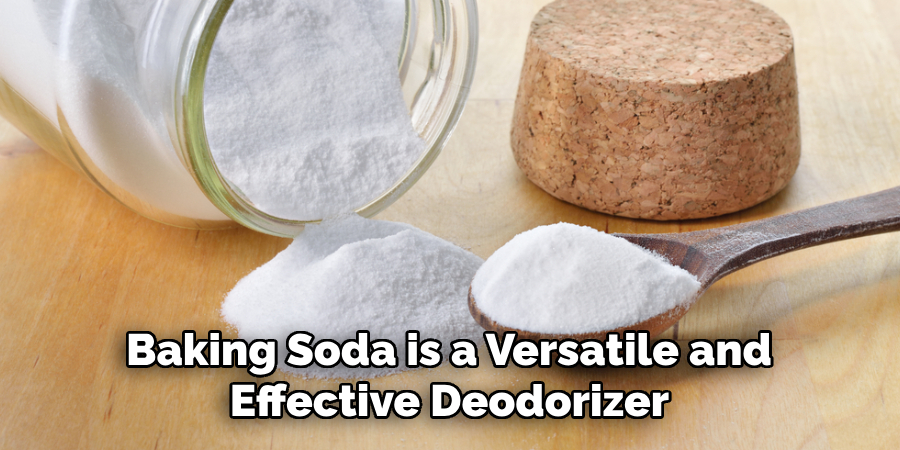
Let the mixture sit for approximately 30 minutes, giving it time to work on the organic matter and any lingering smells. Afterward, flush the drain with hot water to clear out any remnants of the mixture, leaving your sink drain fresh and clean. This method not only deodorizes your drain but also contributes to maintaining a clearer line over time.
Step 3: Baking Soda and Lemon Juice:
If you prefer a fresh citrus scent, using lemon juice with baking soda can be an effective deodorizing method. Start by squeezing the juice of one or two lemons into a mixing bowl, depending on how strong you want the solution to be. Next, add half a cup of baking soda to the lemon juice and mix thoroughly until it forms a paste-like consistency.
Carefully pour this mixture down the drain and let it sit for about 30 minutes before rinsing with hot water. The combination of the acidic properties in lemon juice and the deodorizing abilities of baking soda effectively eliminates any unwanted smells from your bathroom sink drain.
Step 4: Using Salt and Lemon Juice
Salt and lemon juice are another effective method to deodorize your bathroom sink drain while also providing a natural cleaning effect. Begin by pouring about half a cup of coarse salt down the drain. The abrasive nature of the salt assists in breaking down any stubborn debris and buildup within the pipes. Next, squeeze the juice of one or two lemons directly into the drain, allowing the acidic properties of the lemon juice to enhance the cleaning process.
Permit the mixture to sit for approximately 30 minutes, letting the salt and lemon work together to neutralize odors and break down organic matter. After the waiting period, flush the drain with hot water to wash away any remnants, leaving your sink drain smelling fresh and clean. This method not only fights unpleasant odors but also promotes a healthier drain environment.
Step 5: Using Bleach
For particularly stubborn odors or buildup, using bleach can be an effective solution to deodorize your bathroom sink drain. Start by pouring half a cup of bleach directly down the drain and allow it to sit for about 10 minutes. Afterward, flush the drain with hot water to help dislodge and wash away any remaining debris or residue.
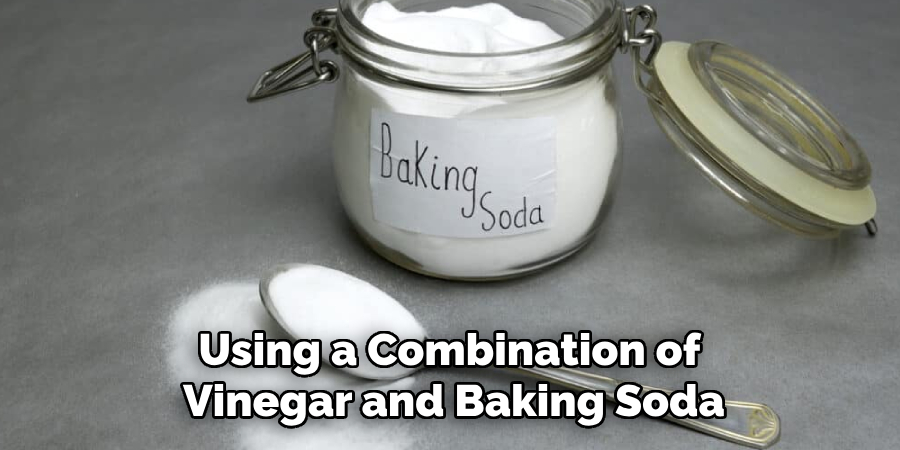
However, caution should be exercised when handling bleach as it is a strong chemical that can cause harm if not used properly. Ensure proper ventilation and avoid direct contact with skin or eyes when working with bleach-based solutions. This method may also not be suitable for those with septic systems as bleach can disrupt the natural balance of bacteria within the system.
Step 6: Essential Oils
Another natural and pleasant-smelling method to deodorize your bathroom sink drain is by using essential oils. Start by mixing about ten drops of your preferred essential oil with a cup of water in a spray bottle. Thoroughly spray the mixture down into the drain, allowing it to settle for about 30 minutes before rinsing with hot water.
The strong scent of the essential oils will help mask any unpleasant odors while also providing additional antibacterial properties that can aid in keeping your sink drain clear and odor-free over time. Some recommended essential oils for this purpose include peppermint, eucalyptus, tea tree, and lemon.
Step 7: Commercial Drain Cleaners
If traditional methods are not producing satisfactory results, using a commercial drain cleaner can be an effective alternative to deodorize your bathroom sink drain. These products contain powerful enzymes and chemicals that break down organic matter and eliminate odors. However, they should be used with caution as some may contain harsh chemicals that can cause harm if not handled properly.
Carefully follow the instructions provided on the product label and avoid direct contact with skin or eyes when handling these solutions. It is also recommended to use them sparingly as frequent use of commercial drain cleaners can potentially damage your pipes over time.
Step 8: Regular Maintenance
Prevention is always better than a cure, and this applies to keeping your bathroom sink drain smelling fresh as well. Incorporating regular maintenance practices can help prevent unpleasant odors and clogs in the first place. This includes using a drain stopper to catch hair and debris, flushing hot water down the drain once a week, and avoiding pouring grease or oil down the drain.
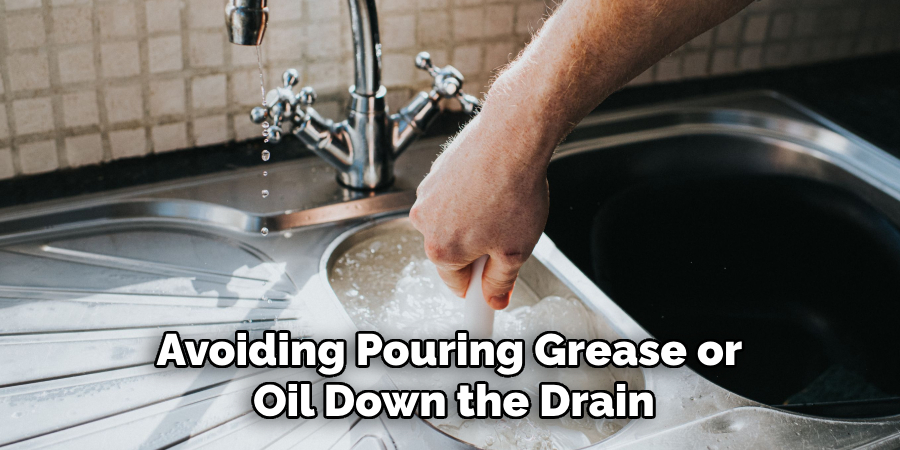
Additionally, conducting a deep clean of your bathroom sink every few months can also help keep odors under control. This involves removing the stopper and cleaning it thoroughly, as well as using a brush or cloth to scrub away any buildup around the edges of the sink and drain area.
By following these simple yet effective methods on how to deodorize bathroom sink drain, you can ensure that your bathroom sink drain remains fresh and odor-free. Choose the method that suits your preferences and the materials on hand, and make it a regular part of your cleaning routine for a clean and pleasant bathroom experience.
Frequently Asked Questions
Q1: Are Commercial Drain Cleaners Safe to Use?
A: While they can be effective in deodorizing your bathroom sink drain, it is important to handle these products with caution as some may contain harsh chemicals. Follow the instructions provided and avoid direct contact with skin or eyes when using the product. It is also recommended to use them sparingly to prevent potential damage to your pipes over time.
Q2: How Often Should I Deodorize My Bathroom Sink Drain?
A: This may depend on the frequency of use and any specific issues with your drain, but a general recommendation is to deodorize it once every few weeks or as needed. Incorporating regular maintenance practices can also help prevent unpleasant odors from occurring in the first place.
Q3: Can I Use Vinegar Instead of Lemon Juice for Deodorizing?
A: Yes, you can substitute lemon juice with vinegar as both are acidic and have deodorizing properties. However, keep in mind that vinegar has a strong odor that may linger for some time. You can also add a few drops of your preferred essential oil to help mask the vinegar smell.
Conclusion
Maintaining a fresh-smelling bathroom sink drain is an essential aspect of overall cleanliness in any household. By using natural and safe methods such as baking soda, lemon juice, essential oils, and regular maintenance, you can effectively eliminate unwanted odors without the use of harsh chemicals.
Ensure to handle any solutions with care and consideration for your pipes and plumbing systems. Incorporate these methods on how to deodorize bathroom sink drain into your cleaning routine to keep a fresh and clean bathroom sink drain for a more enjoyable bathroom experience.
So why wait? Try out one of these deodorizing methods today and say goodbye to unpleasant smells in your bathroom sink drain! Happy cleaning!

